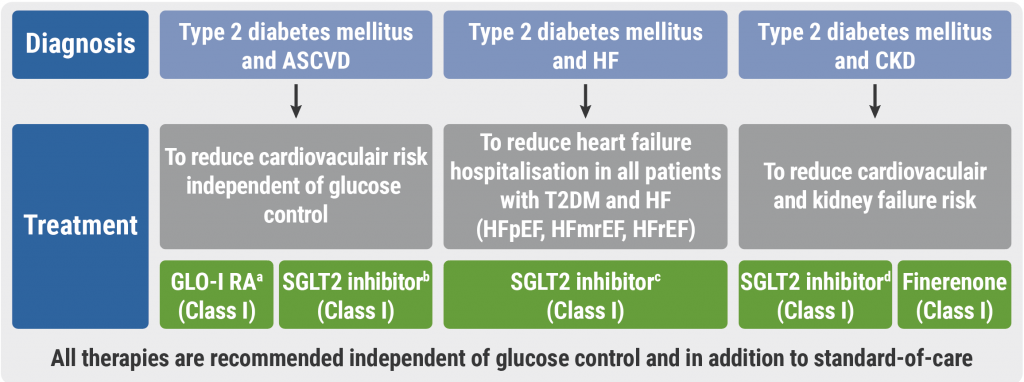https://doi.org/10.55788/4267126c
Prof. Paulus Kirchhof (University Heart & Vascular Center Hamburg, Germany) and his colleagues hypothesised that the oral anticoagulant edoxaban would prevent stroke and systemic embolism in patients with AHRE [1,2]. From 206 sites across Europe, they enrolled 2,536 patients with AHRE, either older than 65 years and with at least 1 additional stroke risk factor or older than 75 years of age, and randomised them 1:1 to edoxaban or a placebo. The primary endpoint of this phase 3 trial, named NOAH-AFNET 6 (NCT02618577), was a composite of stroke, systemic embolism, or cardiovascular death. The trial was unanimously terminated after 184 of the planned 220 primary outcome events had occurred.
After a median follow-up of 21 months, 3.3% of the participants in the edoxaban arm experienced a primary outcome event compared with 4.0% in the placebo arm (adjusted HR 0.81; 95% CI 0.60–1.08; P=0.15). As expected, the safety outcome of major bleeding or death favoured the placebo arm over the edoxaban arm with 114 versus 149 events (HR 1.31; 95% CI 1.02–1.67; P=0.03). This effect was predominantly driven by a higher rate of major bleeding in the experimental arm (adjusted HR 2.10; P=0.002). “The stroke rates were low with or without anticoagulation (0.9% vs 1.1%),” noted Prof. Kirchhof, “and we can’t prevent what does not occur” [1].
Based on these results, the researchers suggest that patients with AHRE should not be managed with anticoagulation therapy until AF is confirmed by ECG. Also, novel methods are needed to estimate the risk of stroke in patients with rare atrial arrhythmias like AHRE.
- Kirchhof P, et al. Anticoagulation with edoxaban in patients with atrial high-rate episodes (AHRE): results of the NOAH-AFNET 6 trial. Hot Line Session 1, ESC Congress 2023, 25–28 August, Amsterdam, the Netherlands.
- Kirchhof P, et al. N Engl J Med 2023; Aug 25. DOI: 10.1056/NEJMoa2303062.
Copyright ©2023 Medicom Medical Publishers
Posted on
Previous Article
« Minimising atrial pacing does not reduce the risk for AF in sinus node disease Next Article
Heart failure: the 2023 update »
« Minimising atrial pacing does not reduce the risk for AF in sinus node disease Next Article
Heart failure: the 2023 update »
Table of Contents: ESC 2023
Featured articles
How to manage arterial thrombosis and thromboembolism in COVID-19?
2023 ESC Guidelines & Updates
Heart failure: the 2023 update
Guidelines for Acute Coronary Syndrome
Guidelines for the management of cardiomyopathies
Cardiovascular disease and diabetes: new guidelines
Guidelines for the management of endocarditis
Trial Updates in Heart Failure
Traditional Chinese medicine successful in HFrEF
CRT upgrade benefits patients with HFrEF and an ICD
Catheter ablation saves lives in end-stage HF with AF
Meta-analysis: Does FCM improve clinical outcomes in HF?
HEART-FID: Is intravenous ferric carboxymaltose helpful in HFrEF with iron deficiency?
Natriuresis-guided diuretic therapy to facilitate decongestion in acute HF
DICTATE-AHF: Early dapagliflozin to manage acute HF
STEP-HFpEF: Semaglutide safe and efficacious in HFpEF plus obesity
Key Research on Prevention
Does colchicine prevent perioperative AF and MINS?
Diagnostic tool doubles cardiovascular diagnoses in patients with COPD or diabetes
Inorganic nitrate strongly reduces CIN in high-risk patients undergoing angiography
Finetuning Antiplatelet and Anticoagulation Therapy
Should we use anticoagulation in AHRE to prevent stroke?
Results of FRAIL-AF trial suggest increased bleeding risk with DOACs
The optimal duration of anticoagulation therapy in cancer patients with DVT
DAPT or clopidogrel monotherapy after stenting in high-risk East-Asian patients?
Assets for ACS and PCI Optimisation
Immediate or staged revascularisation in STEMI plus multivessel disease?
Lp(a) and cardiovascular events: which test is the best?
No benefit of extracorporeal life support in MI plus cardiogenic shock
Functional revascularisation outperforms culprit-only strategy in older MI patients
Can aspirin be omitted after PCI in patients with high bleeding risk?
Angiography vs OCT vs IVUS guidance for PCI: a network meta-analysis
OCTOBER trial: OCT-guided PCI improves clinical outcomes in bifurcation lesions
Other
Minimising atrial pacing does not reduce the risk for AF in sinus node disease
ARAMIS: Can anakinra alleviate acute myocarditis?
Expedited transfer to a specialised centre does not improve cardiac arrest outcomes
Acoramidis improves survival and functional status in ATTR-CM
Related Articles
October 30, 2023
DICTATE-AHF: Early dapagliflozin to manage acute HF

October 30, 2023
Cardiovascular disease and diabetes: new guidelines
© 2024 Medicom Medical Publishers. All rights reserved. Terms and Conditions | Privacy Policy
HEAD OFFICE
Laarderhoogtweg 25
1101 EB Amsterdam
The Netherlands
T: +31 85 4012 560
E: publishers@medicom-publishers.com

